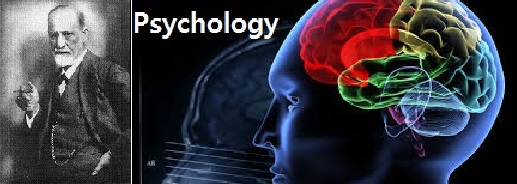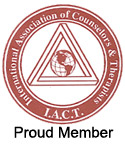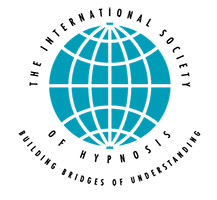
Mental disorder or mental illness is a psychological or behavioral pattern that is generally associated with distress or disability, and which is not considered part of normal development or a person's culture. Mental disorders are generally defined by a combination of how a person feels, acts, thinks or perceives. This may be associated with particular regions or functions of the brain or rest of the nervous system, often in a social context. The recognition and understanding of mental health conditions have changed over time and across cultures. Over a third of people in most countries report problems at some time in their life which meet criteria for diagnosis of one or more of the common types of mental disorder.
The causes of mental disorders are varied and in some cases unclear, and theories may incorporate findings from a range of fields. Services are based in psychiatric hospitals or in the community, and assessments are carried out by psychiatrists, clinical psychologists and clinical social workers, using various methods but often relying on observation and questioning. Clinical treatments are provided by various mental health professionals. Psychotherapy and psychiatric medication are two major treatment options, as are social interventions, peer support and self-help. There are many different categories of mental disorder, and many different facets of human behavior and personality that can become disordered.
Anxiety or fear that interferes with normal functioning may be classified as an anxiety disorder. Commonly recognized categories include specific phobias, generalized anxiety disorder, social anxiety disorder, panic disorder, agoraphobia, obsessive-compulsive disorder and post-traumatic stress disorder.
Other affective (emotion/mood) processes can also become disordered. Mood disorder involving unusually intense and sustained sadness, melancholia or despair is known as major depression (also known as unipolar or clinical depression). Milder but still prolonged depression can be diagnosed as dysthymia. Bipolar disorder (also known as manic depression) involves abnormally "high" or pressured mood states, known as mania or hypomania, alternating with normal or depressed mood.
Patterns of belief, language use and perception of reality can become disordered (e.g. delusions, thought disorder, hallucinations). Psychotic disorders in this domain include schizophrenia, and delusional disorder. Schizoaffective disorder is a category used for individuals showing aspects of both schizophrenia and affective disorders. Schizotypy is a category used for individuals showing some of the characteristics associated with schizophrenia but without meeting cut-off criteria.
Personality—the fundamental characteristics of a person that influence his or her thoughts and behaviors across situations and time—may be considered disordered if judged to be abnormally rigid and maladaptive. Although considered separately by some, the commonly used categorical schemes include them as mental disorders. Different personality disorders such as paranoid, schizoid, schizotypal, antisocial, borderline, histrionic or narcissistic. Others fear-related such as avoidant, or dependent, or obsessive-compulsive. If an inability to sufficiently adjust to life circumstances begins within three months of a particular event or situation, and ends within six months after the stressor stops or is eliminated, it may instead be an adjustment disorder.
Eating disorders involve disproportionate concern in matters of food and weight. Categories of disorder in this area include anorexia nervosa, bulimia nervosa, exercise bulimia or binge eating disorder.
Sleep disorders such as insomnia involve disruption to normal sleep patterns, or a feeling of tiredness despite sleep appearing normal.
Sexual and gender identity disorders may be diagnosed, including dyspareunia, gender identity disorder and ego-dystonic homosexuality. Various kinds of paraphilia are considered mental disorders (sexual arousal to objects, situations, or individuals that are considered abnormal or harmful to the person or others).
People who are abnormally unable to resist certain urges or impulses that could be harmful to themselves or others, may be classed as having an impulse control disorder, including various kinds of tic disorders such as Tourette's syndrome, and disorders such as kleptomania (stealing) or pyromania (fire-setting). Various behavioral addictions, such as gambling addiction, may be classed as a disorder. Obsessive-compulsive disorder can sometimes involve an inability to resist certain acts but is classed separately as being primarily an anxiety disorder.
The use of drugs (legal or illegal, including alcohol), when it persists despite significant problems related to its use, may be defined as a mental disorder. Substance use disorders, which includes substance dependence and substance abuse.
People who suffer severe disturbances of their self-identity, memory and general awareness of themselves and their surroundings may be classed as having a dissociative identity disorder, such as depersonalization disorder or Dissociative Identity Disorder itself (which has also been called multiple personality disorder, or "split personality").
Other memory or cognitive disorders include amnesia or various kinds of old age dementia.
A range of developmental disorders that initially occur in childhood may be diagnosed, for example autism spectrum disorders, oppositional defiant disorder and conduct disorder, and attention deficit hyperactivity disorder (ADHD), which may continue into adulthood.
Conduct disorder, if continuing into adulthood, may be diagnosed as antisocial personality disorder (dissocial personality disorder in the ICD). Psychopath (or sociopath)
Somatoform disorders may be diagnosed when there are problems that appear to originate in the body that are thought to be manifestations of a mental disorder. This includes somatization disorder and conversion disorder. There are also disorders of how a person perceives their body, such as body dysmorphic disorder.
Neurasthenia is an old diagnosis involving somatic complaints as well as fatigue and low spirits/depression.
Factitious disorders, such as Munchausen syndrome, are diagnosed where symptoms are thought to be experienced (deliberately produced) and/or reported (feigned) for personal gain.
There is a category of relational disorder, where the diagnosis is of a relationship rather than on any one individual in that relationship. The relationship may be between children and their parents, between couples, or others. Psychosis: a diagnosis of shared psychotic disorder where two or more individuals share a particular delusion because of their close relationship with each other.
There are a number of uncommon psychiatric syndromes. Various new types of mental disorder diagnosis: self-defeating personality disorder, sadistic personality disorder, passive-aggressive personality disorder and premenstrual dysphoric disorder.








